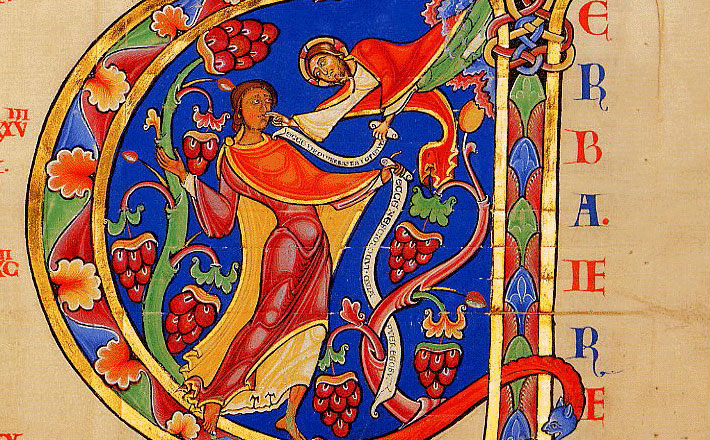Commentary on Jeremiah 15:15-21
These verses come in the middle of the poetic material commonly called Jeremiah’s “laments” or “confessions.”
The timeframe is the late seventh and sixth centuries BCE. These are the years on either side of the destruction of the kingdom of Judah by Nebuchadnezzar. When Jerusalem was destroyed, many of the people were deported to Babylonia. Those not taken into exile were subjected to imperial rule in the homeland.
Jeremiah had struggled, before this destruction, to warn the people about the consequences of their complicity in a sinful society. On the one hand, God’s judgment in allowing the Babylonians to destroy the kingdom is attributed to the people’s failure to worship the LORD alone; too often, they put their trust in earthly power and material things. On the other, the prophets clearly state that the people also betrayed the LORD through acts of violence and injustice. Those who know and understand Israel’s God know that the LORD delights in and acts with “steadfast love, justice, and righteousness” (Jeremiah 9:24). To worship this God means to act—as nearly as humanly possible—in a similar way.
God’s commitment to justice seeks justice for all people—all people are, after all, God’s own creatures. Appropriately, however, most of God’s attention is given to those whose poverty, homelessness, migrant status, or disability makes them vulnerable to the abuses of those in power. Theirs are the lives endangered when the government ignores corrupt officials, who redirect funding to personal projects and private pockets; theirs are the lives impoverished by exclusionary policies and discriminatory practices. God’s justice remains undone until the most marginal are treated as fully human, fully possessed of the image of God.
The powerful people in Jerusalem were not interested in hearing this message. Changing their ways meant admitting that they were living a privileged existence, built on the backs of others—then choosing to give it up. Jeremiah spoke an inconvenient truth: he drew attention to the corruption in his community and demanded change. There are several reports in the book of the lengths that those in power were willing to go to shut him up: dumping him in a muddy pit and leaving him to rot, locking him up in prison where no one could hear him, and even trying to kill him.
The first half of this passage expresses Jeremiah’s frustration with the people who refuse to hear him and his anger at those who actively try to prevent him from being heard. The words that God gave him to speak—words of justice, of love and care for one’s neighbor, of opposition to violent oppression—are powerful, life-giving words. The image of eating the word is one of taking it into the body and letting it transform the whole self: not mere lip service, but a genuine receptiveness to transformation that extends to every facet of one’s being in the world.
The incongruity between this summons to the pursuit of justice and the reality that Jeremiah faces is deeply disturbing. The prophet is justifiably indignant: great suffering has come about because the people have persistently failed to hear God’s word. Jeremiah is hardly the first prophet sent to convey this to the people; their corruption is a long-term, systemic problem.
The stark realization of this incongruity lends Jeremiah to despair; these dreams and visions of God’s justice even feel deceitful because they are so far from reality. But God tells Jeremiah he must continue to proclaim the word to the people. It will not be an easy road, but God will remain steadfast to Jeremiah as Jeremiah remains steadfast to the word. Though the powerful will try to silence him, they will not prevail.
Jeremiah’s struggle speaks to us today more than ever. Then, as now, the powerful sought to silence those who champion God’s vision of a more just society: those who speak out on behalf of the poor, the homeless, the disabled, the displaced—those whose suffering is a living condemnation of our original sin. Surrounded by ignorance and opposition, the dream of a society ruled by God’s justice, righteousness, and steadfast love appears deferred—even impossible. In the face of exhaustion and despair, God affirms that the work must go on. Everything is at stake.


August 30, 2020